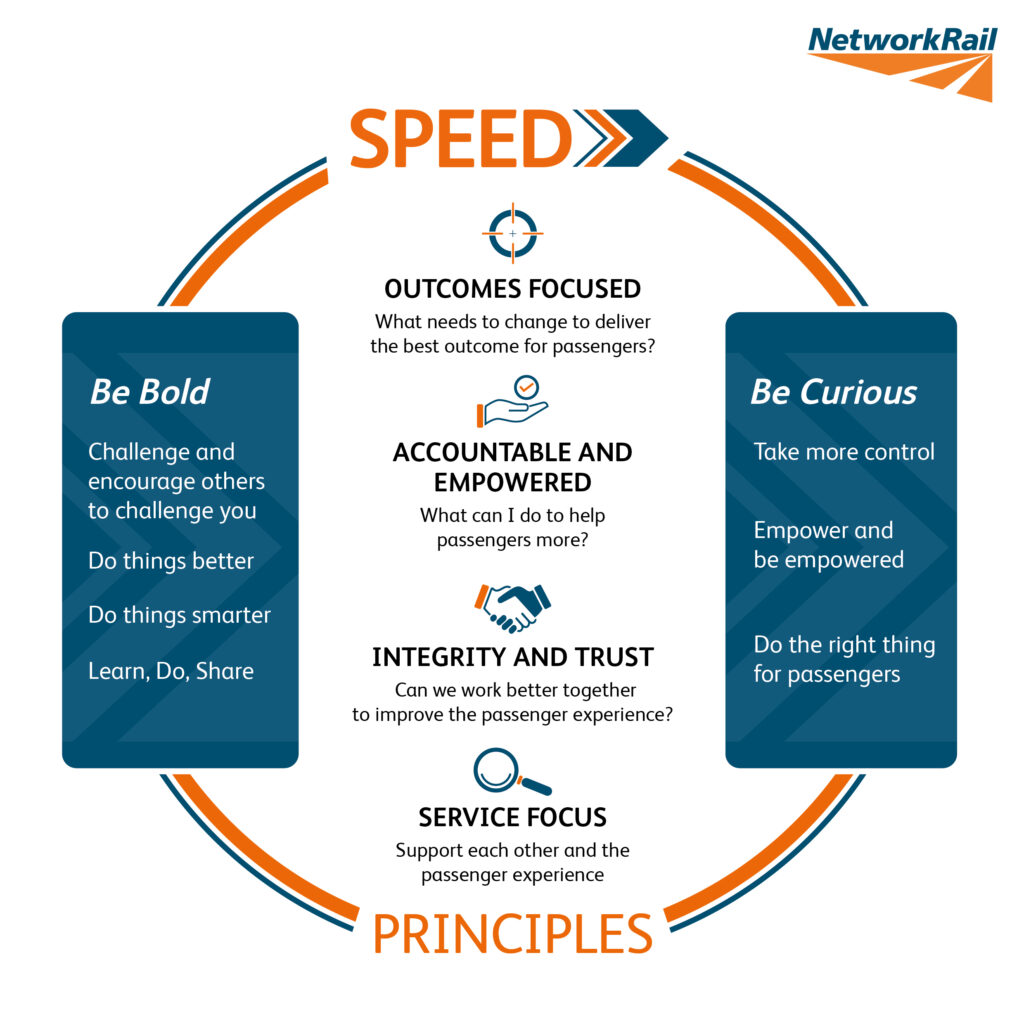Rail SPEED
SPEED is a way of life at Network Rail. It’s the approach we’re taking to deliver better projects and programmes, faster and more economically.

SPEED Principles
Every day we empower our people to always be safe, care about the railways and the surrounding environment, its users and each other and put teamwork at the heart of all we do. Building on these values, we have developed our SPEED principles to guide our day-to-day working and make sure that we all play our part in building a sustainable, modern and efficient railway we can be proud of.
These principles offer guidance for everyone working in the railway. They help people understand how they can contribute positively through their decisions and actions. They are designed to help people intelligently and safely challenge the status quo, be curious about finding ways to improve how we work and to be bold enough to implement them. Where our processes and procedures seem slow and inefficient, our SPEED principles directly challenge them.
Our SPEED principles are:
- Outcomes focused – What needs to change to deliver the best value outcome for passengers?
- Accountable and empowered – What can I do to help passengers more? Getting it right first time.
- Integrity and trust – Can we work better together to improve the passenger experience?
- Service focus – Support each other and the passenger experience

SPEED in action
To date we have achieved hundreds of millions of pounds worth of savings and cut years off programme schedules.
For example, a lower power solution for point heating systems. These are critical when trains switch tracks, particularly harsh winter conditions. In these conditions, the systems melt any snow and ice on the points. We mandates a heating specification of 200 Watts per metre (W/m)for point heating systems on Route Criticality 1.
The Central Rail Systems Alliance used the SPEED principles and Minimum Viable Product approach to find a way to reduce the power solution whilst still meeting performance requirements.
Through working with their design partner and cross industry experts, a derogation application was submitted to downgrade the heating specification to 150W/m which was accepted. Here are some of the expected benefits from this change:
- £2.25M estimated whole-life saving (CAPEX and OPEX)
- £100k estimated annual CAPEX saving
- Assists re-directing funding where most required
- Environmental benefits – reduction in construction and energy usage
- National application opportunities.
How suppliers can get involved
There are several ways our suppliers can actively engage in SPEED, all of which are found on our SPEED information hub.
Below is some specific areas and quick links:
- The SPEED toolset
- Standards challenge
- Innovation acceleration (Capital Delivery)
- National Lessons Learnt library
For more information and access to our SPEED Hub, please email: SPEED@networkrail.co.uk.